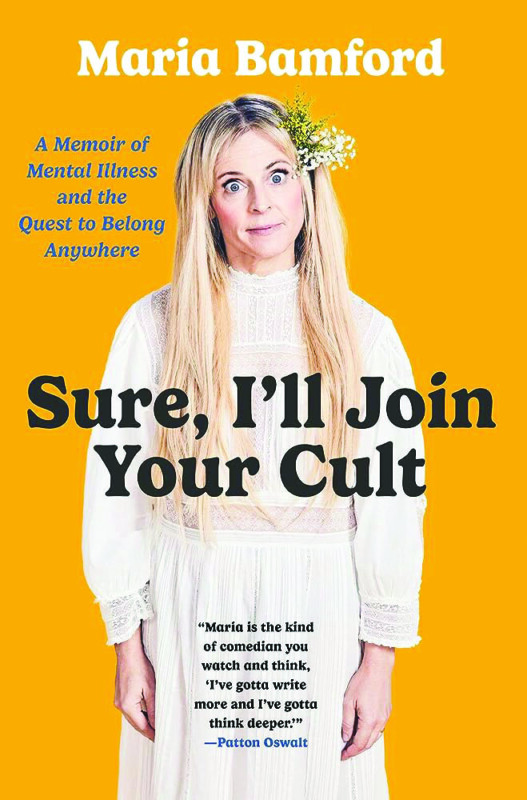Be Useful, Arnold Schwarzenegger (Penguin Press, 263 pages)
“Be useful,” Arnold Schwarzenegger’s father used to tell him, and it’s good advice. It’s also a great book title, especially when paired with the subtitle “Seven tools for life.” That’s likely a play on two books by a certain controversial Canadian psychologist, but it works, especially in the hands of a body-building movie star and former politician. Unfortunately, it’s about the only thing that works in this self-aggrandizing collection of platitudes and boasts that is sub-par even for the genre known as “self-help.”
Where to start? How about the cover? Perhaps Schwarzenegger wasn’t channeling his inner Donald Trump mugshot with this dark and unsmiling closeup, but they’ve both got the same vibe: angry men you don’t want to brush up against in an alley. Don’t judge a book by its cover and all that, but also don’t scare off the readers. That said, Schwarzenegger is 76, and looking better than some others in his Hollywood cohort, reason enough to check out his rules in case there’s anything helpful there.
Schwarzenegger begins with an introduction in which he rattles off his accomplishments as if introducing himself as the keynote at a Rotary Club dinner. (As governor of California, he implemented “environmental policies that inspired the world” and passed “some of the most groundbreaking, cutting-edge policies that state government has ever seen” and so forth). He also briefly confronts some of his very public failures — the breakup of his marriage to Maria Shriver because of infidelity, and the loss of reputation and movie projects after that. To be fair, he owns it: “I blew up my family,” he wrote. “No failure has ever felt worse than that.” But a page later, he’s back to celebrating himself, writing, “If you’re ever read anything about me, though, you probably already know that I didn’t give up.”
And way too soon comes the line we knew was coming but could have done without: “Like I always tell you, I’ll be back.”
OK, then. On to the rules, each one of which comprises a chapter. We can quickly dispense with the first three, which are standard fare for the genre: “Have a clear vision,” “Never think small” and “Work your (expletive) off.” There’s not much in here that you couldn’t have written yourself, except maybe for the part about developing your clear vision by sitting in your Jacuzzi. Because, of course, that’s where inspiration comes from — not walking for hours around London at night, which is how Charles Dickens wrote “A Christmas Carol.”
“There’s something about the hot water and the steam, about the hum of the jets and the rush of the bubbles. The feeling of floating, of not being able to feel the weight of my own body, sharpens all my other senses and opens me up to everything around me. The Jacuzzi gives me twenty to thirty minutes of mental clarity. It’s where I do some of my best thinking,” Schwarzenegger writes.
This was startling to me, not that a movie star hangs out regularly in his Jacuzzi, but because suddenly I began to think I’d gotten it wrong, that this book was comedy, not self-help. Particularly when I read the next sentence: “Sitting in the Jacuzzi is where I got the idea for my speech to the American people after the events of Jan. 6, 2021.”
In that speech, which I’d completely forgotten but was easily found online, he said he wanted to help the American people in their time of distress, which is why he made the video, and that Trump would soon be as irrelevant as an old tweet, a statement that hasn’t aged well. But if you were moved by that speech, the backstory is all here.
Moving on to Rule 4, “Sell, sell, sell.” In this chapter Schwarzenegger extols the value of visualization, confidence and publicity, and why it’s helpful to let people underestimate you (they’ll be blown away when you exceed their expectations later).
Rule 5, “Shift gears,” sounds like a guide to pivoting when things aren’t going well, but is actually more of an ode to positivity, and not of the Norman Vincent Peale kind.
Schwarzenegger grew up in Thal, Austria, under conditions that many contemporary Americans might consider child abuse. His father, for example, required that he do 200 knee bends every morning to “earn” his breakfast and Schwarzenegger writes that his father would sometimes “come home drunk after work and hit us. Those times were very hard.”
But, he said, he chose to recognize that “on the vast majority of days my father was a good dad” and the difficulties he encountered in childhood helped to make him the person he is today. He also notes, however, that his brother grew up to be an alcoholic and eventually died in a drunk driving accident, so that formula for success is not one-size-fits-all. There’s a deeper, more poignant book in the brothers’ stories and how their lives turned out so differently, and the fact that it’s buried under talk about positive thinking is a bit unsettling.
The final rules are “Shut your mouth, open your mind,” and “Break your mirrors,” the latter a line that Schwarzenegger got from his former father-in-law, the late Sargent Shriver, who said in a speech in 1994 that we need to stop looking so much at ourselves and look at each other. It’s solid advice, particularly in the age of the selfie, and is an unexpectedly serious note on which to end, particularly after all the Jacuzzi nonsense.
On his way to becoming a champion bodybuilder, Schwarzegegger worked out five hours every day, and he says that as his goals evolved he took that same chunk of time and put it into whatever he was striving to be good at — first actor, then politician. That information suggests that there’s much more to this man than showmanship, and we get glimpses of depth in this book. Unfortunately too much of it dwells in the shallows, and it rises only to the level of a Dollar Store book. D






